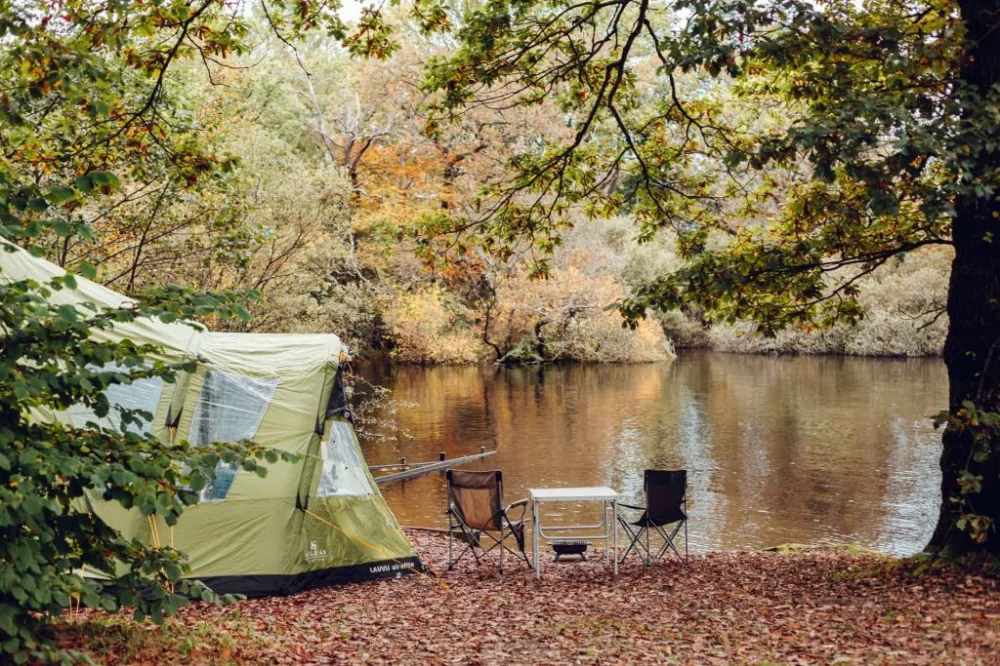Discover the best sustainable camping practices for nature lovers. Learn eco-friendly camping tips, green practices, and how to preserve nature while enjoying the outdoors. Perfect for those looking to camp responsibly and sustainably.

Best Sustainable Camping Practices for Nature Lovers
- Why Sustainable Camping Matters
- Eco-Friendly Camping Tips
- Choosing Green Camping Gear
- Respecting Nature During Your Stay
- Real Travel Experience: Eco-Friendly Camping Story
- Start Your Eco-Friendly Camping Adventure
1. Why Sustainable Camping Matters
Camping is one of the most rewarding ways to connect with nature, but it also comes with the responsibility of preserving the natural environment. Sustainable camping practices help minimize your ecological footprint, protect wildlife habitats, and ensure that future generations can enjoy nature’s beauty just as you have. As more people flock to outdoor destinations, it becomes crucial to adopt practices that reduce waste and conserve resources. Nature lovers who embrace sustainability are ensuring that their adventures leave a positive impact on the planet.
2. Eco-Friendly Camping Tips
There are several ways to make your camping trip more eco-friendly. From reducing waste to conserving water, these sustainable camping practices are simple to follow and can make a significant difference:
- Pack Light, Pack Smart: Minimize the amount of gear you bring. Avoid overpacking and choose multi-use items to reduce waste. Opt for lightweight, durable gear that won't break easily or require replacement.
- Leave No Trace: Follow the Leave No Trace principles, which emphasize cleaning up after yourself, staying on trails, and avoiding damage to plant life.
- Use Biodegradable Products: Choose biodegradable soaps, shampoos, and detergents to protect water sources from harmful chemicals.
- Limit Campfire Use: Campfires can have a devastating impact on local environments. Use a camping stove to cook meals, and when campfires are necessary, make sure to use established fire pits.
- Recycle and Compost: Bring along recycling bags and compost bins to keep your waste to a minimum and ensure that your waste is disposed of properly.
3. Choosing Green Camping Gear
Investing in eco-friendly camping gear is one of the best ways to make your trips more sustainable. Choose gear made from sustainable materials such as bamboo, recycled plastic, or organic cotton. Many companies now produce gear designed to minimize environmental impact, from tents to sleeping bags. For example, consider a tent made with recycled fabrics or a stove fueled by sustainable biomass. Opting for renewable, durable, and repairable items over disposable alternatives ensures that your camping experience is not only enjoyable but also responsible.
4. Respecting Nature During Your Stay
Respect for nature is at the core of sustainable camping practices. Whether you’re camping in a national park or a remote wilderness area, it’s important to be mindful of your impact. Here are a few ways to ensure that you’re leaving the environment as pristine as you found it:
- Stay on Trails: Staying on established trails prevents soil erosion and protects local flora and fauna.
- Wildlife Awareness: Keep your distance from wildlife and never feed animals. Feeding them can alter their natural behaviors and put both you and the animals at risk.
- Minimize Noise Pollution: Keep noise levels down to avoid disturbing wildlife and other campers.
- Use Reusable Containers: Avoid single-use plastics by bringing your own water bottles, food containers, and utensils.
5. Real Travel Experience: Eco-Friendly Camping Story
One of the most inspiring eco-friendly camping experiences I’ve had was a recent trip to a remote mountain range. My group and I decided to only use renewable energy sources for our campfires, cooking, and lighting. We used solar-powered lanterns, a portable stove with minimal fuel consumption, and a water filtration system that reduced the need for bottled water. It was incredible to see how small changes could have such a large positive impact on the environment. The highlight of the trip was watching the sun set over the mountains while knowing that we had left no trace behind.
6. Start Your Eco-Friendly Camping Adventure
Are you ready to embark on your own eco-friendly camping journey? Start by planning your trip to a destination known for its commitment to sustainability, such as national parks that emphasize conservation. Research local guidelines and make sure to pack smartly, using eco-friendly gear and adopting sustainable practices throughout your trip. Whether you’re a seasoned camper or a first-timer, there’s no better way to connect with nature than by leaving it better than you found it.
So pack your bags, embrace sustainable camping practices, and make lasting memories while protecting the planet for future explorers. Your eco-friendly adventure awaits!
Blue Bear Mountain
196 BLue Bear Mtn Rd, Todd, NC 28684, USA
Visit Location PageCave Eddy Campground
Licking, MO 65542, USA
Visit Location Page